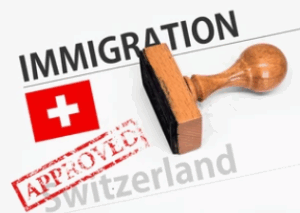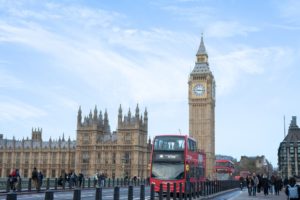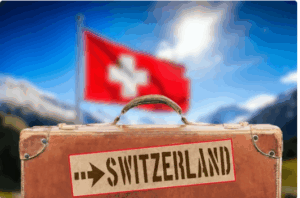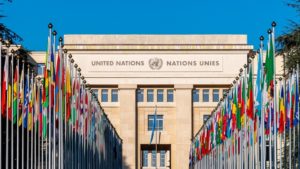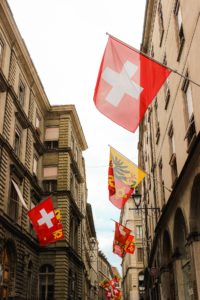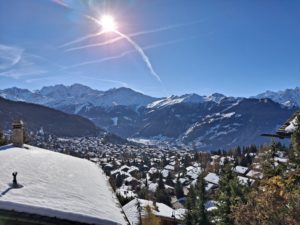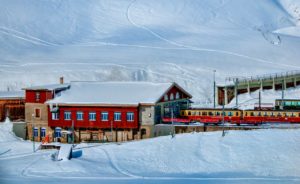PERMITS
RETIRING IN SWITZERLAND
The pandemic has revealed the pros and cons of each nation’s health system and ability to handle a major crisis. The recent events have stirred many life decisions in terms of settling in a new environment and starting a new life elsewhere.
Switzerland offers a high quality lifestyle combined with excellent healthcare infrastructures, a stable government system and highly competitive academic institutions. Divided into 26 cantons and three linguistic regions (Italian, German an French), most cities are nestled between lakes and mountains.

First step
If you are considering moving to Switzerland, the first step is to select a future Canton of residence.
Indeed, the application takes place on a cantonal level.
The language spoken in the Canton could be a criterion to determine where you would like to settle down, as well as other factors such as the cantonal tax system, the types and prices of properties available or personal ties or family connections in a specific area.
Zug offers the lowest tax rate, but the cantons of Geneva, Vaud, Zurich and Valais are usually preferred by expats, where English is commonly understood. Settling in an alpine ski resort in Valais, such as Verbier or Crans-Montana for example, offers an exceptional quality of lifestyle.
Second step
Once you have determined where you would like to settle in Switzerland, you will need to apply for a residence permit (B permit).
The cantonal immigration authority will generally deliver the permit, although the communal immigration authority handles the application directly in some cantons, where the applicant must declare their arrival within 14 days.
If you are a citizen of one of the 27 EU/EFTA member states, you benefit from the Agreement on the free movement of people (AMFP) allowing you to settle in Switzerland without gainful employment.
Once in Switzerland, you have 90 days to apply for your residence permit.
A retiree or person without gainful employment must be able to prove they have sufficient financial means to cover their expenses and living costs in Switzerland (proof of personal assets or pension fund) and hold a valid health and accident insurance.
The applicant can buy property as a primary residence once the B permit has been granted.
Non-EU citizens
Unless they meet the requirements for lump sum taxation, whereby the retiree can negotiate a yearly taxation set in advance with the cantonal tax authorities, non-EU citizens must meet three conditions to apply for a B permit:
First of all, the retiree must be at least 55 years old.
It is then required that the applicant have strong personnal ties with Switzerland, such as proof of regular trips over the past years and existing social or family ties.
Lastly, proof of sufficient funds to settle in Switzerland long-term must be demonstrated through bank statements or pension fund details. The application is examined at a cantonal level first, then at a federal level. The approval is dependent on the authorities’ discretionary power.
In practice, the applicant must be able to provide proof that his financial situation would allow themself and their dependents to spend the rest of their life in Switzerland without ever requiring financial assistance from the canton.
Lump-sum taxation
Non-EU citizens can apply for a B permit through a lump sum tax agreement, i.e. an agreement with the tax authorities whereby their annual taxes are determined in advance.
Lump-sum taxation, also referred to as expenditure-based taxation, is a simplified taxation system through which the taxpayer’s taxes are based on their spending and not on their revenues. The tax is calculated on the basis of the taxpayers’ total annual cost of living in Switzerland and abroad, for themselves and their dependents.
The law sets the minimum value on the basis of which the tax must be calculated. This value is based on a comparative system. Three elements are taken into account, of which the highest value forms the basis to calculate the expenditure-based taxation. Firstly, the tax calculated on the amount set by the law representing the minimum amount for expenditure. On a federal level, this amount is of CHF 400’000.- for European citizens. For non-European citizens, the minimal amount can vary as it is set by each canton. Secondly, the tax calculated on the annual rental value or gross rent multiplied by seven or three times the annual cost for housing and food. Lastly, the expenditure-based tax cannot be lower than the tax on certain gross elements of income and wealth in Switzerland.
Long-term Swiss residence
After 5 years holding the B permit, the foreigner and his family members can apply for a C permit, providing permanent residency in Switzerland. Permanent residency opens the path to Swiss citizenship after 10 years of residence if the integration requirements are met.
More free content on Permits in Switzerland
Browse our free content topics below. Answers to important and frequently asked questions can be found here.
Moving abroad temporarily and thinking of maintaining your Swiss C permit?
A C permit is Switzerland’s permanent residency, allowing unrestricted work and residence nationwide. It is typically granted after 10 years of residency or 5 years...
Read MoreBusiness visitors to Switzerland
If you are planning a short-term business trip to Switzerland, it is crucial to understand and comply with the relevant immigration regulations. The Schengen...
Read MoreUK citizens planning to move to Switzerland: the 7 things you need to know to apply for a work permit
UK citizens planning to move to Switzerland: the 7 things you need to know to apply for a work permit From January 2021, UK citizens...
Read MoreSwiss residency and housing: Permit and rental insights
Switzerland is a country where Alpine serenity meets economic dynamism! With its world-class infrastructure, political stability, and exceptional quality of life, it is no surprise...
Read MoreMoving to Valais as an expat? The 10 golden rules you need to know
Valais canton offers an incredible work-life balance with a choice of international schools of high teaching quality and dynamic expat communities. Integration is the key...
Read MoreFlash News: New UK Travel Rules for Swiss & EU Citizens from April 2025
As of April 2, 2025, all Swiss and EU citizens, including children and babies, must obtain an Electronic Travel Authorization (ETA) to enter the UK...
Read MoreAre you holding a carte de légitimation or Ci permit and are planning to apply for a Swiss permit ?
Are you holding a carte de légitimation or Ci permit ? What is a CDL? The “carte de légitimation”, or Cdl, is an authorization to...
Read MoreSwiss naturalization: what are the 5 conditions to be eligible?
Swiss naturalization: obtaining Swiss citizenship is often perceived as the holy grail by foreigners, as the ordinary procedure is said to be one of the...
Read MoreUK citizens and the protection of acquired rights, what are the rules ?
Since the end of the post-Brexit transition measures in January 2021, UK citizens no longer hold the same residency rights as EU citizens. However, UK...
Read MoreAre you dreaming of working in the Swiss Alps this winter ? Check out the requirements for the seasonnal L work permit!
Switzerland is a prime destination for seasonal workers, especially during the winter months. Given the short duration of their stay, typically four to six months,...
Read MoreObtaining the Swiss citizenship
What changes under the new law? In June 2014, the Swiss Parliament modified the law regarding the conditions to obtain the Swiss citizenship. This change...
Read MoreWhat is happening in 2017 with Swiss work permit quotas?
The quotas for work permits attributed to non-European citizens in 2017 have been now established by the Federal Council. Bern decided that Switzerland must be...
Read MoreBook your consultation
Book your legal consultation online with English-speaking lawyers! We are located within the law firm OA Legal on the 5th floor at 1 place de Longemalle, 1204 Geneva. Our consultation can be made on Zoom or in our Office for a flat fee of CHF 300.-..


